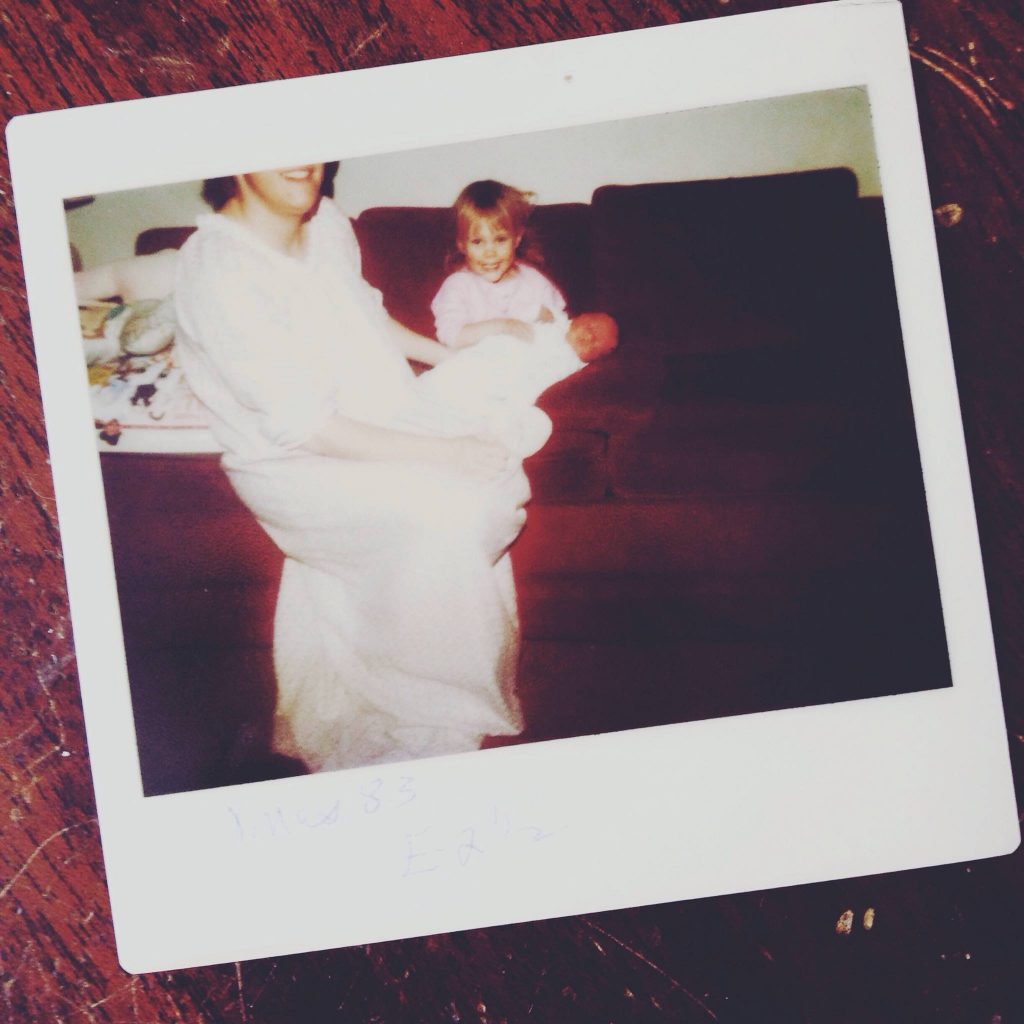Rip It Up and Start Again I Hope to God Im Not as Numb
I cling to scraps of my mother. I'll take anything I can get.
I've extracted all that I can from my memories; turning each one over in my mind, carefully searching for something I might have forgotten. I've poured over her letters and notes which I keep tucked away among keepsakes of more obvious sentimentality. Here's a lock of hair from my daughter's first haircut; this is a note from my husband on the eve of our wedding; and, oh look, here is a tattered piece of yellow paper where my mother scribbled a vegetarian chili recipe.
When I was done excavating every corner of my history, I started picking through other people's memories and mementos. This remains a hobby of mine to this day, as I unearth the family photo albums every chance I get and perk my ears towards any mention of her name.
My mother died when I was a naïve new bride in my early twenties, and now that I'm a much wiser woman in her mid-thirties, I realize we missed out on so much. Whether it's true or not, I believe that had she lived our parent/child relationship would have become deeper, nuanced, and candid in a way that only a parent/adult-child relationship can be.
I want to know how she really felt about things. I want her to tell me the thoughts, experiences, and opinions she was saving for a day when I was old enough to hear them. I want to laugh with her at adult jokes. I want to gossip about my siblings. I want her to criticize my parenting. I want to buy her a present now that I have a few dollars in my pocket. I want her to love my children.
I need to know – if she were here today, what would she want? What would she think? What would she say? How would she feel? What would she do? Obviously, these answers don't exist because my mother isn't here to supply them, but I allow myself to believe that maybe, if I collect everything that's left of her in this world, then she can continue to be my mother.

In their book, Continuing Bonds: New Understandings of Grief, authors Dennis Klass, Phyllis Silverman, and Steven Nickman observed that children who had lost a parent found ways to continue their relationship with the parent even after they were gone. The children maintained their connection by cherishing memories, talking to the parent, believing the parent was watching over them, and keeping their objects. Interestingly, they also observed that the child's relationship with the deceased parent was not static. Instead, it evolved and matured as the child grew.
So if our relationships with deceased loved ones evolve, then our grief must evolve as well. Not only do we grieve them at the time of the death, but we also grieve them in the future when we enter new life stages, hit milestones, and understand new realities. Although we may have made peace with certain pieces of our grief in the past, in time we discover sadness over losses we hadn't even known existed. We imagine in our 20's, 30's, 40's, 50's and beyond how our relationship theoretically might have been and we grieve for our inability to hear, touch, see, and talk to the person they would have become.
People like me, who are nurturing relationships with the dead, have no choice but to take what we can get and so we hold onto objects, we search for reminders, we talk about them, and we look for clues to tell us who they were and who they would be today. Holding onto a loved one was, at one point, considered pathological and remnants of this mindset can still be found in the attitudes and expectations of our society. However, when we accept that we can have fluid, changing, and longterm relationships with those who have died, we open ourselves up to a new understanding of grief. A conceptualization that normalizes experiencing grief and sadness years after the death, and which gives us permission to continuously redefine our relationships with the person who has died for as long as we live.
Subscribe
Source: https://whatsyourgrief.com/relationships-with-the-dead/
0 Response to "Rip It Up and Start Again I Hope to God Im Not as Numb"
Post a Comment